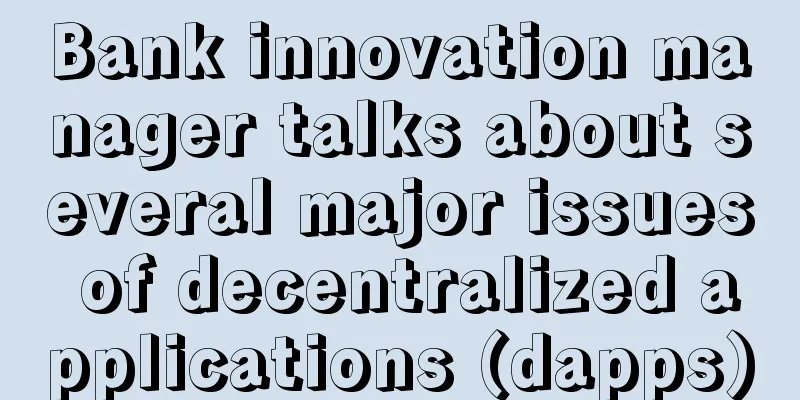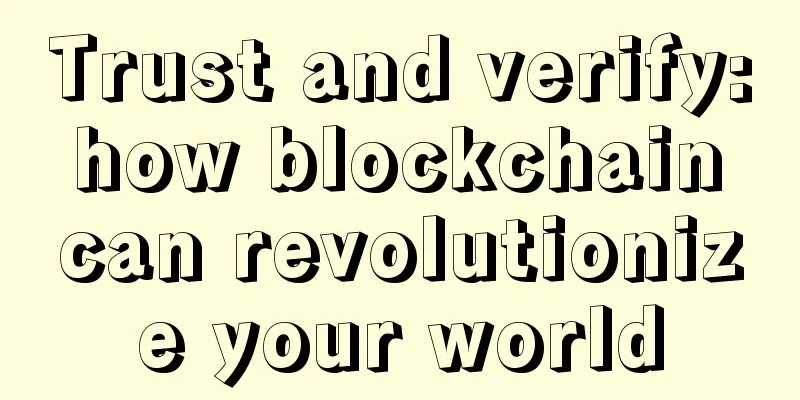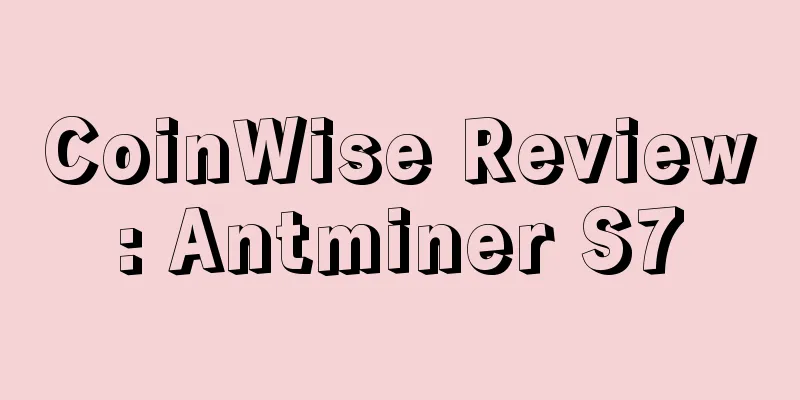Bank innovation manager talks about several major issues of decentralized applications (dapps)

|
Alex Batlin is a senior innovation manager at the UBS FinTech Innovation Lab and head of crypto 2.0 blockchain technology research at the Swiss financial firm. In the article, Batlin points out that decentralized applications are more at risk of centralization than hardwired protocols like Bitcoin. Over the past few months, I’ve been struggling to understand the dynamics between Ethereum’s smart contract-based distributed application (dapp) model and hardwired protocols like Bitcoin or Ripple. This week, that feeling has crystallized into a semi-coherent train of thought. Hardwired protocols do not separate the protocol from the business logic; the same protocol designers, software developers, and miners control how the Distributed Autonomous Organization (DAO) functions. It is different for dapps. There is a clear dividing line between the protocol and business logic encapsulated in the smart contract. The evolutionary dynamics of dapp-based protocols can be similar to Bitcoin, but it is very different from the dapp itself. They can have a clear owner, such as who uploaded it, or the person or organization that collects its usage fees. Concentration RiskThis introduces an unexpected, at least to me, risk of centralization. Of course, the protocol can be distributed, and therefore the operation of the dapp can be distributed, but if many other dapps use a shared smart contract that is controlled by one party, then you are back to a centralized model, at least on the logical layer, which in some cases may be exactly what you want to avoid. If managed properly, this isn't necessarily a problem. Highly shared smart contracts can be considered key infrastructure components that can be formally owned and managed by some form of open software foundation (OSF), such as the Ethereum Foundation or some other organization. The key here is that there should be no confusion about who owns the smart contracts and what obligations they have. Alternatively, you can write “mirror” smart contracts to mitigate the risks of centralization. For example, suppose two parties need to track a bilateral contract. Each party will deploy its own smart contract instance, and each instance will also track the contract's outgoing and incoming transactions. Technically, double tracking data would be inefficient, but it does provide a simple ownership model. That said, as long as they provide unique value and users are fully aware of the associated risks, there is no reason why smart contracts cannot be private, even if they are highly shared. Welcome to the Dapp StoreOnce you start charging for your dapp, you have to figure out what you are charging for. Are you charging for deploying your own smart contract and dapp wallet, kind of like buying an app from the app store? Or is it a service provided by the deployed smart contract? It can be said that it is difficult to charge service fees for smart contracts unless the dapp has a lot of value-added off-chain services. Based on this assessment, we may end the “DAPP store” model, where people need to purchase a license to deploy a well-written, standards-compliant DAPP instance on the blockchain. However, this means that dapp creators don’t need to provide guarantees of business, so who would do that? There are similar examples today, for example, iOS developers rely on Apple to provide devices, OS operating system and App Store. And they all rely on bandwidth and connections provided by mobile Internet Service Providers (ISPs). However, none of them guarantee the entire service from beginning to end for app users. New Entity RequirementsTherefore, the conclusion is that we need a new type of entity: a Blockchain Service Provider (BSP). Essentially, it is not a Bitcoin or Ethereum miner, or validator equivalent, as it is today, but rather it is a provider of a guarantee, maintaining a full node for use by lightweight end-user wallets. This blockchain service provider is likely to run on a blockchain-as-a-service (BaaS) cloud computing platform, such as Microsoft's Azure platform, which already supports multiple blockchains. This structure requires clear legal responsibilities for the entire supply chain. End users must formally accept the restrictive regulations of dapp wallets, dapp smart contracts, and blockchain service providers. Multiple interconnected blockchain service providers will be required to provide a sufficient level of trust that exceeds that provided by centralized service providers, as no single party will be able to unilaterally change any part of the system. In other words, blockchain business is a trustworthy business, and then you need to decide whether you will enhance trust for the specific application you use. Original article: http://www.coindesk.com/crypto-2-0-musings-dapp-centralisation/ |
<<: Japan proposes to define and regulate Bitcoin transactions
>>: Chinese version of UK government report “Beyond Blockchain”
Recommend
Zcoin XZC MTP Mining Software Mining Tutorial
Zerocoin has been upgraded to the MTP algorithm, ...
Who is born with good luck in love according to face reading
In real life, there are always some people who ar...
What is the impact of Taiwan authorities' investigation into Bitmain? TSMC is the key to the key
Wu said author | Colin Wu Editor of this issue | ...
Canadian company raises $20 million to develop crypto mining chips
On August 15, according to bitcoin news, Canadian...
What kind of woman will ruin your career?
There are scars or horizontal lines on the bridge...
Whose fault is it that Bitfinex got hacked? Was it BitGO? What about other exchanges that also use BitGo?
Another shocking theft of Bitcoin! Bitfinex was h...
How to tell what a vicious woman looks like
As society becomes more and more complex, more an...
What kind of woman has a good fate?
What kind of face will bring good fortune to wome...
What are the obvious features of a person who is bad at making his descendants
In life, people often talk about the issue of pun...
How to explain the saying that women with short little fingers are blessed
The length of fingers also affects our fortune. T...
What does a mole on the foot mean?
Basically everyone has moles on their bodies, but...
UBS blockchain expert: Blockchain + cross-border payment = the nemesis of banks
Technological innovations, challenging economic c...
When blockchain no longer requires mining machines, will Bitmain sink?
At the end of March this year, Bitmain launched a...
What kind of women are most favored?
What kind of women are most favored? The first fa...
Babble-on accepts Bitcoin and Alipay payments
Although the price of Bitcoin has fallen to the b...









